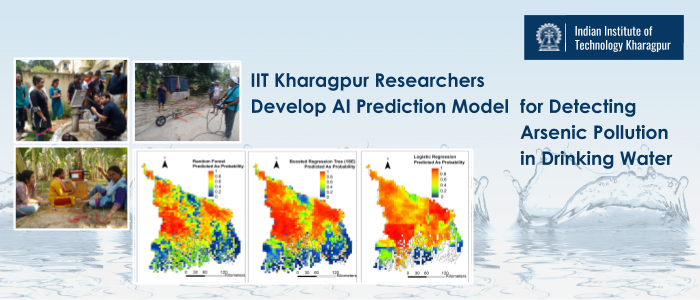
AI to Detect How Safe is Your Drinking Water
Researchers from IIT Kharagpur have developed an AI-based prediction model for detecting Arsenic pollution in drinking water Arsenic has been a menace in Eastern India especially along the banks of the Ganga for almost two decades now, putting millions of people at severe health risk. Researchers have been studying the distribution patterns of the contaminated groundwater for years to develop a large-scale ecological and environmental framework addressing this challenge in the region. For the first time, a breakthrough has been achieved. A group of researchers from IIT Kharagpur has successfully predicted the distribution of groundwater arsenic and human health risk…
